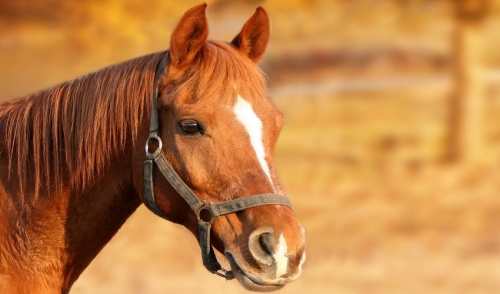{article.name}
Stay Informed
Sign up for email list
for exclusive offers, information and updates!
View our Email Archive
Protect Your Horse From Worms and Germs

- Share this:
- Share on Facebook
- Pin on Pinterest
- Tweet on Twitter
While some worms and germs are beneficial to horses for proper digestive health and an overall healthy immune system, and many others are harmless, there are some pests and parasites that can cause serious health problems even leading to disabilities and death. It is always wise for any horse owner to take steps to protect their horses from unwanted worms and germs, and doing so is not difficult.
- Know the Signs
In order to prevent unwanted contamination, it is necessary recognize when your horse is infected with worms and germs. Watch for changes in behavior such as an appetite shift, lethargy or personality changes, and be on the lookout for diarrhea, colic, coat deterioration or other signs of illness. When those signs do occur, seek veterinary help right away to prevent further contamination or exacerbated problems.
- Keep It Clean
Worms, germs and parasites thrive in unsanitary conditions, and can quickly build up to harmful levels if a horse's equipment and living space is not kept clean. To minimize contamination, remove manure from stalls regularly, disinfect feeding and watering troughs, replace bedding frequently and rotate the pastures horses use to allow manure to dry up and decompose without spreading worms and germs.
- Vaccinate Appropriately
Regular vaccinations as well as deworming pastes, gels and liquids can help keep unwanted parasites away from horses. Consult with your veterinarian for the appropriate medications for your horse's age, breed and health conditions, taking into account your regional pest problems and any other special considerations that can impact vaccine effectiveness.
- Watch the News
Large scale outbreaks of worms, germs and other horse parasites may not be featured on the nightly news, but they will likely be reported to local horse breeding and training facilities as well as large animal veterinarians and similar facilities. Be aware of any local and regional problems and take steps to protect your horse before it becomes infected.
- Have a Happy, Healthy Horse
A horse in good condition physically, mentally and emotionally is better able to resist infections from worms and germs. Offer a balanced, nutritious diet to your horse, ensure it gets sufficient exercise and mental stimulation and groom the animal regularly to keep it in the best possible condition. Not only will a healthier horse be better able to resist problems, but when problems do occur, they can be noticed and eliminated much more quickly.
Worms and germs are part of a horse's life, but with proper care and attention, these unwanted parasites do not have to take over – or end – any horse's life.
Special Offers
We are constantly adding new specials to our site. Be sure to check back often!


Comments